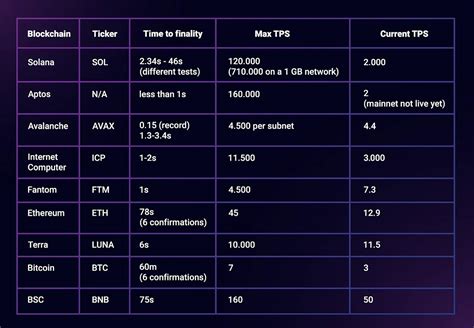Ethereum Transaction Rate Bottleneck: Understanding the Problem
As mentioned above, Bitcoin has a relatively high transaction rate of 3.3 to 7 transactions per second (TPS). However, another major problem with Ethereum is its transaction rate bottleneck. While Ethereum’s current TPS is impressive, it still lags behind other blockchain networks in terms of scalability.
Why does Ethereum have a transaction rate bottleneck?
The main reason for Ethereum’s high transaction rate bottleneck is the verification process that occurs after each block. Every time a new block is mined, it must be verified by the Ethereum Network (ETHN) network of nodes. This process requires significant computing power and energy consumption.
Here are some key details about the transaction rate bottleneck:
- Proof of Work

: Ethereum uses a Proof of Work (PoW) consensus algorithm that requires miners to solve complex mathematical puzzles to validate transactions and create new blocks. This process consumes a huge amount of energy, making it one of the most energy-intensive processes on the network.
- Verification time: The verification time for each block is about 10 minutes, during which time multiple ETH nodes must work together to verify transaction data. This significantly delays the processing of new transactions.
- Transaction throughput: Ethereum’s current TPS of about 15 TPS (transactions per second) is still below the maximum theoretical TPS limit. It is estimated that the network could theoretically handle up to 30 TPS if it could scale more efficiently.
Other factors contributing to the bottleneck
While PoW is a significant contributor to the transaction rate bottleneck, other factors also play a role:
- Gas cost: The cost of processing transactions on the Ethereum network can be high, especially for transactions involving complex logic or large amounts of data.
- Smart Contract Complexity: The complexity of smart contracts can increase gas costs and slow down transaction times.
- Network Congestion: As the number of users increases, so does the demand for resources (e.g., CPU power, memory) on the network.
How does Ethereum plan to scale?
The Ethereum development team has been working on scaling solutions for several years, including:
- Sharding: Sharding involves dividing the network into smaller, independent shards that can process transactions independently without interfering with other shards.
- Staking
: Staking allows staking participants to participate in the consensus process without solving complex mathematical puzzles, thereby reducing the energy required.
- Off-chain Transactions: Off-chain transactions can be processed faster and more efficiently than on-chain transactions, which are currently slower due to transaction speed bottlenecks.
While Ethereum has made significant progress in addressing scalability issues, the network still faces performance and capacity challenges. As the development team continues to work on scaling solutions, we can expect improvements in the overall usability and efficiency of the network.
In summary, Ethereum’s current transaction speed bottleneck is largely due to its consensus algorithm that proves it works, which requires significant computing power and energy consumption. While there are other factors contributing to the problem, understanding these root causes will help us appreciate the complexity of scaling a blockchain network like Ethereum.
